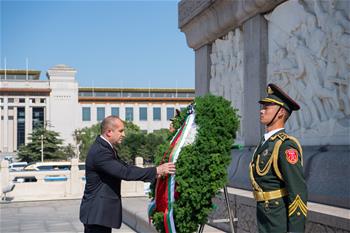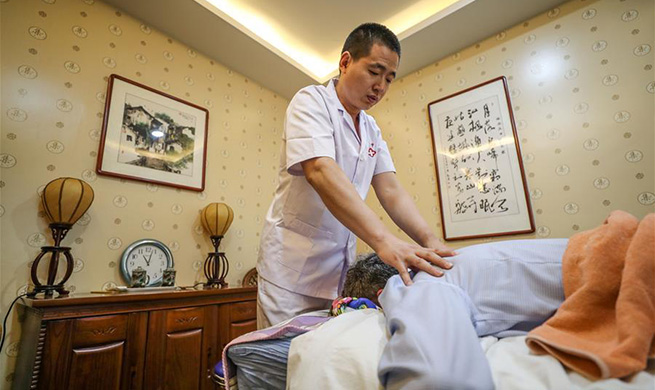WASHINGTON, July 3 (Xinhua) -- Scientists in the United States have identified an immune-boosting compound that could significantly shrink the pancreatic tumors in animals when combined with immunotherapy.
The study published on Wednesday in Science Translational Medicine showed that in mice experiments, the compound worked to reduce tumor growth and metastases of the pancreatic cancer, a disease so deadly that only eight percent of patients are still alive five years after diagnosis.
In theory, immunotherapies release the brake on immune T cells to prod them into killing cancer cells. In practice, those therapies worked only for fewer than five percent of pancreatic cancer patients.
The researchers then realized that myeloid cells in and around tumors can either tamp down or ramp up the immune response by releasing molecules that affect how many T cells are recruited to the tumor. In pancreatic tumors, however, myeloid cells typically suppress other immune cells, according to the study.
The researchers from Rush University in Chicago found a compound called ADH-503 that could interfere with the migration of myeloid cells. Administering the compound to mice with pancreatic cancer decreased the myeloid cells and increased cancer-killing T cells in the tumor, according to the study.
Then, the researchers including those from Washington University School of Medicine treated those mice with a standard immunotherapy in conjunction with ADH-503, and they found that the tumors shrank and the mice survived significantly longer.
In some experiments, all the tumors disappeared within a month of treatment and all the mice survived for four months, while all the untreated mice died within six weeks, according to the study.
Also, mice treated with chemotherapy or radiation therapy both fared significantly better when ADH-503 was included into the regimen.
"In animal studies, this small molecule led to very marked improvements and was even curative in some cases. We are hopeful that this approach could help pancreatic cancer patients," said the paper's co-senior author David DeNardo, associate professor of medicine at Washington University School of Medicine.













